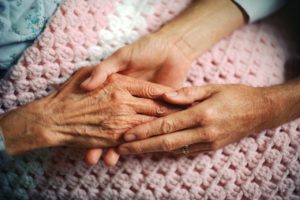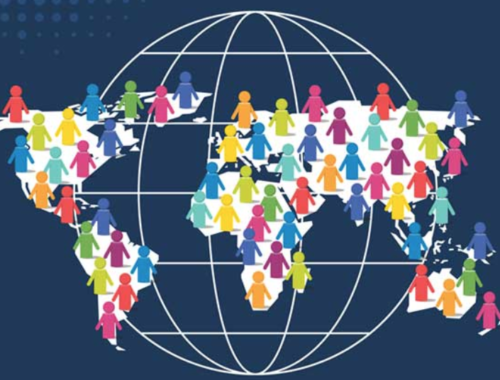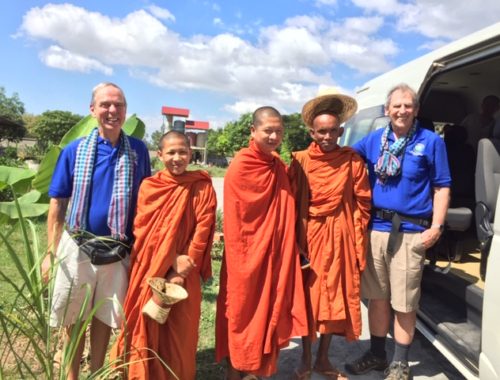Caregivers: Our Unsung Heroes
Our Unsung Heroes
One group of unsung heroes in our society are our caregivers. Most often they are associated with medical care. They include retirement and nursing home workers, hospital staff, nurses, nurse practitioners, doctors, physiotherapists, chiropractors, paramedics, orderlies, emergency room attendants and volunteers. They are also the many on the front lines of the COVID-19 pandemic. Very often the caregivers are family members – most often women.

Their work can be emotional, frustrating, boring, stressful and tiring. It is often thankless, and sometimes involves risk to themselves. Caregivers typically need to deal with functional things such as eating, getting someone dressed and communicating. This can be particularly challenging if dealing with a person with dementia.
Caring for family members can also alter lifestyles and require doing extra chores around the house if the person being looked after is not able to do what he/she formerly did before. Sometimes the person being cared for does not show any appreciation for what the caregiver is providing and even more dishearteningly, the person being cared for does not even remember who you are. Children often are the ones who look after their parents. In this case, the care giving has gone full circle.
On the positive side, you may want to read the very touching book “Love You Forever” written by children’s author Robert Munsch (Paperback http://www.chapters.indigo.ca
It is about a young boy being looked after by his mother and eventually he looks after her. It is short and beautifully illustrated.
There are two care giving stories I would like to relate. The first involved the wife of a very good friend who had developed a very severe case of Parkinson’s. She could hardly move and was beyond feeding herself. I found it very difficult to understand her.
Fortunately she had two wonderful home care workers (one at a time) who were absolute saints. While they were paid, it was not a lot and much of what they made was sent home to their families in the Philippines. What these petite women did was absolutely amazing. They fed her, lifted her, got her in and out of a chair and bed and read to her. They encouraged her and they developed a wonderful relationship, becoming her friend. Watching them brought tears to my eyes. To repeat, they were saints.
The second story is taken from my book “Creating Opportunities.”
“My volunteering at the Toronto Rehab Centre gives me a reason to get up in the morning,” says Audrey Caza, now 81. “I have been doing it for 27 years and while I did volunteer from 11-7 for many years, I only do it now one day a week from noon until 4:30 p.m.”
Audrey works with people suffering from dementia. She does a myriad of things, including singing. “The people may not remember you but they can remember the old songs. It is important to be a part of their life instead of trying to bring them into your world,” says Audrey.
She always wears bright colours and steps aside when family members come to visit. She is a role model for other volunteers, particularly young people, as they can see after this length of time she still enjoys what she is doing. She adds that even this type of volunteering requires a serious commitment.
Caregivers are not just in Canada. They are all over the world. I saw this in Tanzania where grannies cared for their children who were dying of AIDs and also having to raise their grandchildren. Often these grannies had few resources other than internal strength, a sense of responsibility, lots of feelings of “I want to help” and love for their children.
Stephen Lewis saw this too and created a foundation to raise money to support these wonderful women.
Dignitas International, a Canadian NGO working with AIDS in Malawi also saw this. Malawi is a very poor country with limited medical resources. Through the leadership of James Fraser and James Orbinski, they harnessed the Malawian practice of home-based care to support those affected by AIDS.
This extra effort that comes from caregivers, I think you will agree is one of the better aspects of humans.
While I am sure satisfaction comes as a result of these sometimes Herculean efforts, caregivers are human and deserve and need extra thanks and recognition. Making it a practice to say thank you in whatever way you can to those who do this wonderful work is to me a GOOD HAPPENING.
In fact, extra care giving is literally and figuratively happening every day right in front of our noses during this time of COVID-19 uncertainty.
I will finish by saying a huge thank you to all of our UNSUNG HEROES
We owe you a lot !!!
Till next time,
Chris Snyder
Good News and Happenings
Good News and Happenings
You May Also Like

Saying Positive and Supportive Things to Others
August 13, 2023
Getting Along and the Golden Rule
July 31, 2022